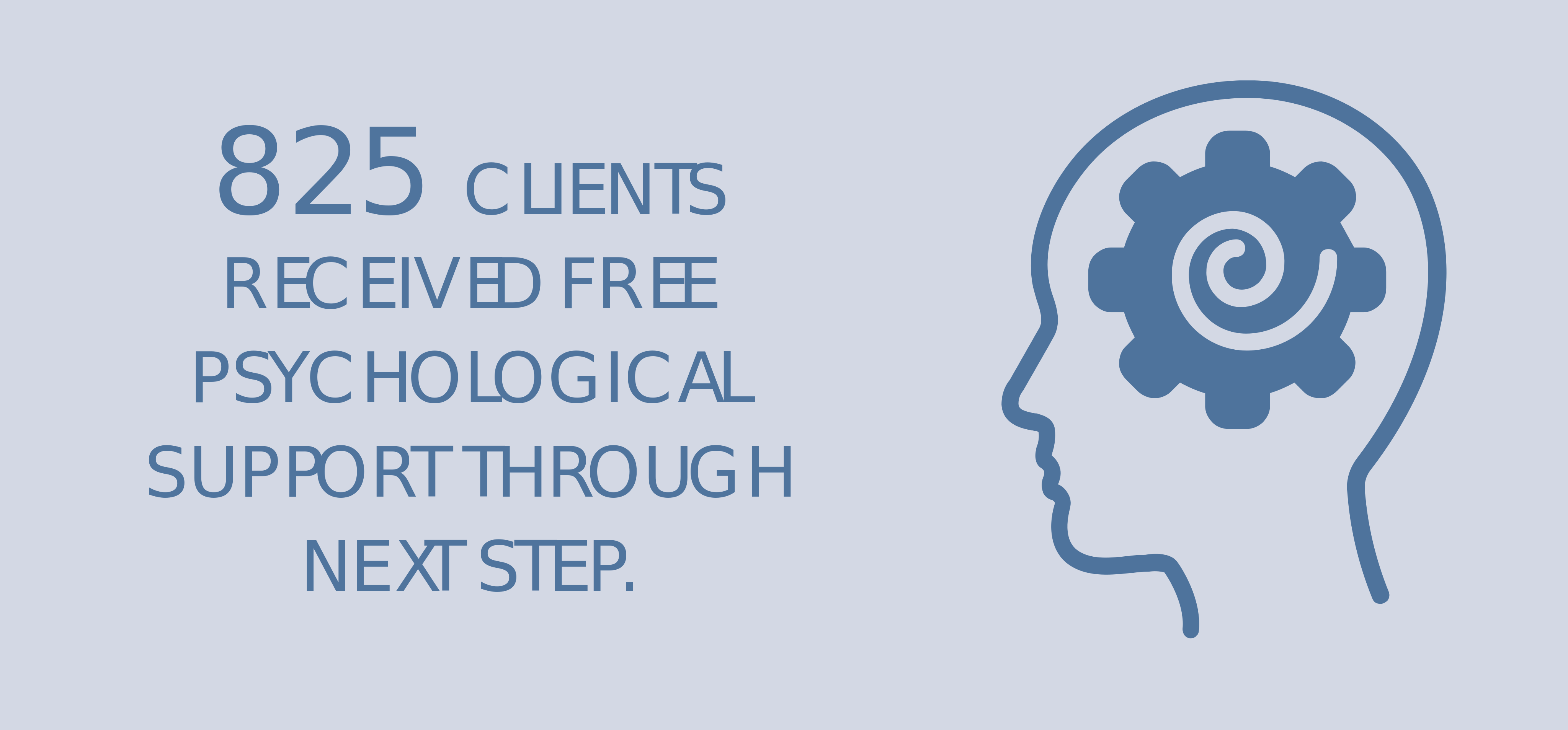The ACT experienced a demand for health care service delivery for people experiencing mild-to-severe mental illness and complex mental health issues. There was a need for services to improve suicide prevention and address service gaps in the provision of psychological therapies for people in underserviced and hard to reach populations.
CHN, ACT’s PHN, commissioned Marymead CatholicCare to deliver Next Step, a mental health stepped care program which provides free and confidential low and high intensity psychological support services for people of all age groups. The Next Step program is based on the UK’s Improving Access to Psychological Therapies (IAPT) model, where clients presenting with symptoms are assessed and then ‘stepped’ into a low or high intensity mental health service that best suits their needs. Next Step services are offered by trained clinical and non-clinical workforces who provide Cognitive Behavioural Therapy (CBT) to help participants work through difficult times in their life that impact the way they function day-to-day.
Over the last year, 825 new clients were seen through the Next Step Program, with over 3,500 low intensity occasions of service and over 4,600 high intensity occasions of service. Of particular note is the continuing trend of high referral numbers from females aged 13-16 years to the High Intensity Next Step program. These clients particularly request a female practitioner and prefer face-to-face appointments. It is currently the most referred age group.
Client story
Chloe* (not her real name) is a teenager who presented for support with recent experiences of anxiety, an upset stomach and intense worry about her social interactions and performance at school. Chloe related this to experiences of a difficult teacher the previous year, as well as being bullied by her peers.
Chloe’s symptoms were interfering with her engagement in classes and leading her to withdraw from peer relationships and new activities. Chloe completed 11 treatment session of cognitive behavioural therapy (CBT). Sessions with Chloe initially focused on her developing awareness of other’s responses in social situations. This was then the basis for Chloe engaging in interventions that tested her anxious beliefs about interactions with others. Additionally, Chloe was assisted to reduce habits of over apologizing to others and over criticizing her efforts when she was trying to do tasks around others, especially in school. At Chloe’s last appointment she reported improvement in her anxious symptoms and much greater confidence at school. Chloe also reported a greater sense of self-worth and more trust in her connections with friends.

